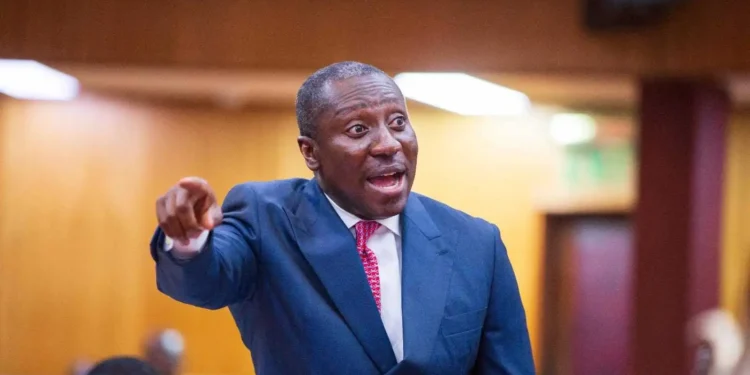Kodzo Yaotse, Policy Lead, Petroleum and Conventional Energy at the Africa Centre for Energy Policy (ACEP), has argued that stabilisation clauses in petroleum contracts should not be demonised as foreign companies operating in the country’s oil and gas sector have already begun climate action.
In a number of cases, stabilisation clauses have been invoked by international oil companies (IOCs) to serve as a guarantee that the host nation would not arbitrarily make changes to terms within petroleum contracts.
These have mostly occurred in situations where foreign investors deem host nations to have gone beyond their contractual boundaries. In these circumstances, international arbitration have mostly been the sought after option by IOCs to reverse the unilateral amendment of contracts by host nations.
Synthesize existing policies to have clear cut climate policies
Stabilisation clauses by their nature cover the ‘entire life’- and in most cases, they span more than 30 to 40 years- of petroleum contracts entered between governments and IOCs.
This notwithstanding, stabilisation clauses are intended to protect foreign investment contract from a range of matters, such as, taxation, environmental controls and other regulations as well as to prevent the termination of the contract itself before the contract expires.
“Let’s not demonise stabilization clauses. These companies on their own have already begun climate action. [For instance, Italy’s] Eni that produces in Ghana, is doing far more than the government of Ghana is doing in terms of climate action.
“Let’s make do with what we have. We have regulations on environmental impact on petroleum activities. These can be harnessed into a more coherent climate policy for the country… We already have policies that we can just synthesize to give us a clear cut climate policy.
“Already, we have our [Nationally Determined Contributions] (NDCs) that give us an idea of our contribution to climate action which every now and then we revise and send to UNFCC.”
Kodzo Yaotse, ACEP Policy Lead
Changes to climate policies in oil/gas sector do not require canceling stabilisation clauses
Mr Yaotse noted that stabilisation clauses really do not affect the country’s efforts to ensure regulations on climate policies are enacted. “We have a ‘no flaring policy’, we did not amend stabilisation clauses to have this policy”, he indicated.
On the contrary, Nicola Woodroffe, a resource governance expert is cited to have said avoiding stabilization clauses in petroleum contracts can allow governments “to reduce or eliminate non-routine flaring and fugitive emissions, increase use of renewable energy in their projects, or to implement carbon capture, utilization and storage or carbon offsetting.”
Several international organisations including the IMF, Organisation for Economic Cooperation and Development (OECD) and the United Nations have all discouraged the use of stabilisation clauses in petroleum contracts, and as the IMF posits, stabilisation clauses may not be necessary to attract investments in oil resources.
The context of this debate is situated within a time when emissions of greenhouse gases are increasing, thereby necessitating accelerated actions by governments towards reaching net zero by 2050. However, this is also situated within a period where global oil prices are booming, and thus increasing risks of resource nationalism, especially in developing countries.
It is therefore essential that these contexts be thoroughly assessed- humanity’s survival from the impact of climate change cannot be ignored. Be that as it may, the government must show its commitment to synthesize its climate change policies to fast-track and improve national contributions to reduce greenhouse gas emissions.
READ ALSO: Commercial Banks Show Growing Appetite for Government Securities, Foreign Assets























